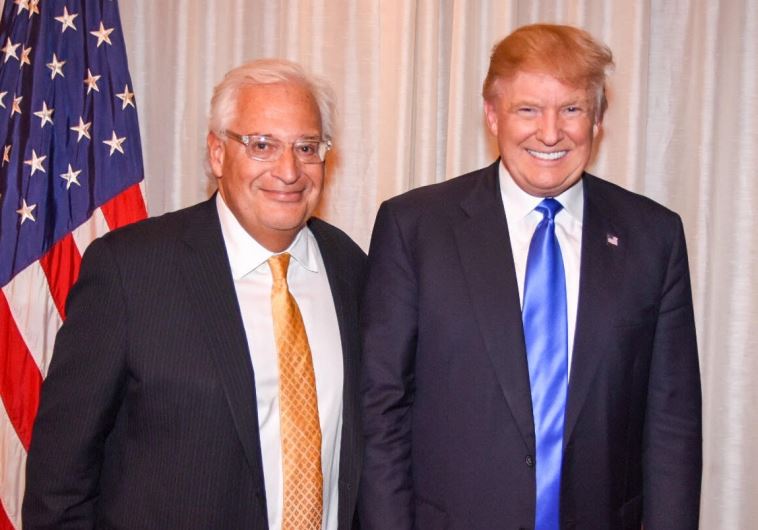The perils of partisanship: J Street's uphill battle against David Friedman
J Street’s alignment with progressive Democrats likely dooms its fight against appointment of David Friedman as ambassador to Israel.
 David Friedman with Donald Trump in ManhattanUpdated:
David Friedman with Donald Trump in ManhattanUpdated: